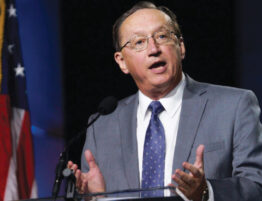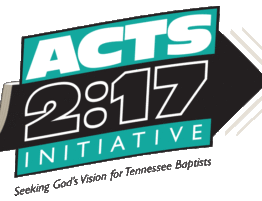 The 18 years I served as a director of mission (DOM) were in an association that had a greater percentage of bivocational pastors and churches than full-time pastors and churches. Obviously I needed to learn quickly how to encourage, support and communicate with those in bivocational ministry.
The 18 years I served as a director of mission (DOM) were in an association that had a greater percentage of bivocational pastors and churches than full-time pastors and churches. Obviously I needed to learn quickly how to encourage, support and communicate with those in bivocational ministry.
Here are five lessons I had to learn if I wanted to be effective in working with bivocational pastors and churches:
(1) Pray for the bivocational pastor, his family and the church. Sound simple? Real prayer for bivocational pastors will only happen when we see him, his family and his church in their environment. If we do not take time to see them and where they are, we will never really be able to love them for the ministry God has entrusted to them. What is true with a pastor and his church is certainly true of any DOM: If we do not truly love bivocational pastors and churches, we will not find the time to pray for them. Through prayer, God will begin to show us how to build an effective relationship with them.
(2) Plan with bivocational pastors’ schedules in mind. We must take seriously the plans we make to assist bivocational pastors and churches, especially if our association has a great number of bivocational churches. In order to help bivocational pastors and churches, the schedule often must be what is more serviceable to them, not what is easiest for us.
(3) Put bivocational pastors in places of leadership and influence within the association. Many bivocational pastors have good skills in leadership. By placing them in associational leadership roles, we strengthen the fellowship between them and full-time pastors. Where I served as DOM, one could never really tell who had an earned doctorate over against someone whose walk with the Lord involved simple Bible studies or the school of hard knocks!
(4) Plan also to keep the bivocational pastor’s wife in the loop when information is shared about opportunities to help the bivocational pastor, his wife and the family. Often she will be the best encourager for her pastor husband to get involved.
(5) Perceive the differences in those who carry the name “bivocational.” Some bivocational pastors have training; some do not. Some are in their first church; some have been around for a long time. Many who plant new work are bivocational.
Please allow me to come alongside you and your association in helping to resource, encourage and challenge your bivocational pastors and churches so they will learn the value of the partnership we have in bringing Tennessee to Christ.
John Parrott is the interim Bivocational Ministry Specialist with the Tennessee Baptist Convention. To connect with John about these thoughts or thoughts you have about serving bivocational pastors and churches, email him at jparrott@tnbaptist.org or you may call him at 423.921.2488.









Write a comment: